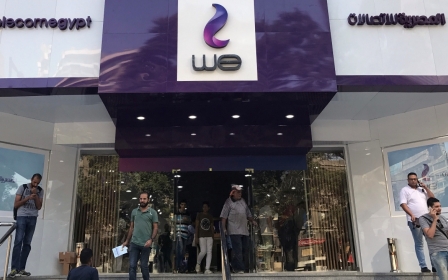Egypt: Inflation soars above 30 percent in February

Inflation in Egypt shot to a five-and-a-half-year high in February, according to data released by statistics agency Capmas on Thursday.
The annual urban consumer inflation rate in February leapt to 31.9 percent from 25.8 percent in January.
It comes in the wake of a series of currency devaluations since March 2022. The value of the Egyptian pound has since collapsed by 50 percent.
Inflation is the highest since August 2017 - nine months after a steep devaluation - when it reached 31.92 percent.
The prices of food and basic commodities, mostly imported, have more than doubled since the Egyptian pound was devalued at the beginning of this year.
This came after the International Monetary Fund approved a bailout with Cairo in December, the third deal since President Abdel Fattah el-Sisi came to power in a 2013 military coup.
The value of the Egyptian pound against the US dollar dropped from seven in 2013 to just above 30 at the time of publication.
A shift to a flexible exchange rate regime is among the main conditions of the international lender to reduce inflation and consolidate the country's spiralling debts.
Prior to the deal and the devaluation, Egypt had already been reeling from the dual impacts of the Russia-Ukraine war and the Covid-19 pandemic on the import-dependent economy.
But the fiscal measures have had immediate effects on the majority of Egypt's 104 million population, with an estimated 60 million people living below or just above the poverty line ($3.20 per day) before the current crisis.
The government last week also raised gasoline prices by around 10 percent to fulfill requirements of subsequent IMF deals to bring fuel prices in line with changes in global oil prices.
Middle East Eye delivers independent and unrivalled coverage and analysis of the Middle East, North Africa and beyond. To learn more about republishing this content and the associated fees, please fill out this form. More about MEE can be found here.





